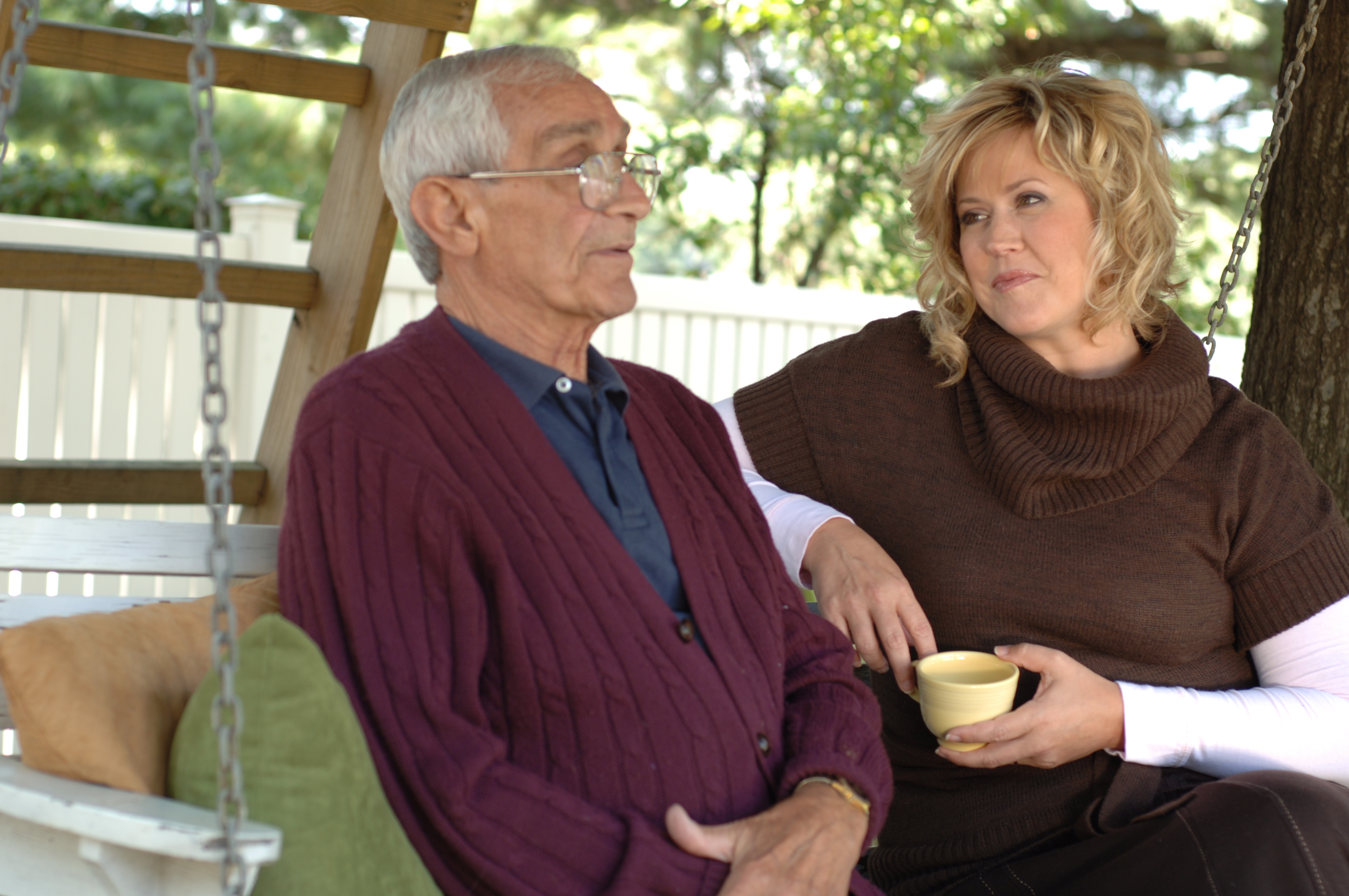If you’ve lost or are caring for a critically ill loved one, you know that moving through the holidays just isn’t the same. Psychologists say it doesn’t seem to matter much if the person you were close with died ten days, or ten years ago…the holiday season triggers grief.
Sights, sounds, smells all bring back powerful memories, which can leave us feeling sad and alone. Coping with this kind of loss is especially difficult at this time of year—when the rest of the world seems to be smiling and celebrating.
And, when we have unresolved feelings about the death of a loved one, everything is amplified. That pent up emotion can burst out making us say things we don’t mean—sometimes hurtful things to family members or friends. Or, it can make us clam up, and become withdrawn, or depressed.
That kind of grieving can start during caregiving too, as we begin mourning the loss of health; and of the way things once were.
 I’m feeling it this year. This is actually the second Christmas without my father-in-law, but for some reason the loss is hitting me harder this time around. I think it has something to do with the fact that as a caregiver, a wife, and a mom, I felt it was my duty to keep it together, and make the holidays as special as possible last year. I don’t think I allowed myself to fully grieve, because I wasn’t thinking about processing my own feelings, like many of you sweet caregivers, I was more concerned with taking care of everyone else.
I’m feeling it this year. This is actually the second Christmas without my father-in-law, but for some reason the loss is hitting me harder this time around. I think it has something to do with the fact that as a caregiver, a wife, and a mom, I felt it was my duty to keep it together, and make the holidays as special as possible last year. I don’t think I allowed myself to fully grieve, because I wasn’t thinking about processing my own feelings, like many of you sweet caregivers, I was more concerned with taking care of everyone else.
Now a year later, with everyone a little more settled and relaxed, I was hit with many reminders of Pap that went straight to my heart: unpacking the stockings I made for all of us, and seeing his along with the rest, making some of the food I know he loved to enjoy, setting the table with his wedding china for Christmas Eve dinner, and sitting in the audience listening to the kids sing at their Christmas concert.
Having lived with us for nearly seven years after the death of his wife, Pap was truly a part of our family, and although he is missed every day, I definitely noticed more “triggers” while preparing for this Christmas.
Coping with grief is a sad reality of caregiving.
Here are some tips from grief management experts on how to make things a little easier:
- Let the feelings come: don’t “try to be strong”, just allow yourself to experience the loss.
- Limit obligations: spend time with family and friends you truly enjoy. Don’t overextend yourself.
- Honor your loved ones memory: light a candle, hang a stocking for people to fill with remembrances, listen to favorite music, go to a ceremony, or make a donation in his or her name.
- Talk about your loved one to friends and family–and don’t shield the kids from this part of the grieving process. One study shows 98% of those who’ve lost a loved one want to talk about him or her.
Important to keep in mind, too, that a second, sometimes even more powerful round of triggers can come in January after all the sparkle is packed away, “Post Holiday Let Down” or “Post Holiday Stress Syndrome”, the medical community calls it. Focusing on working through any grief now will help to lessen the intensity of what you feel as time goes on.
I’d love your comments on coping with holiday grief. How do you honor your loved one?
j.
